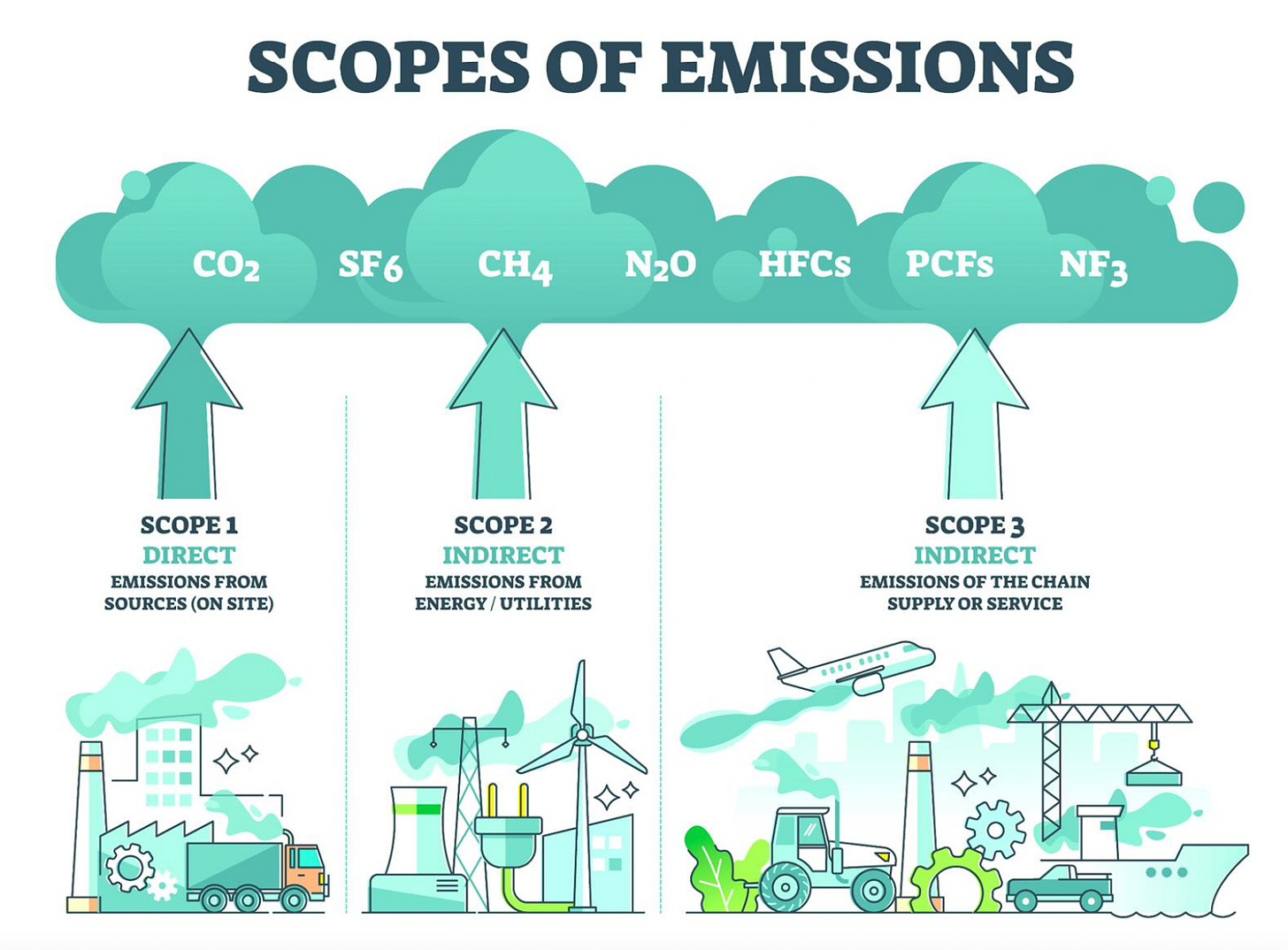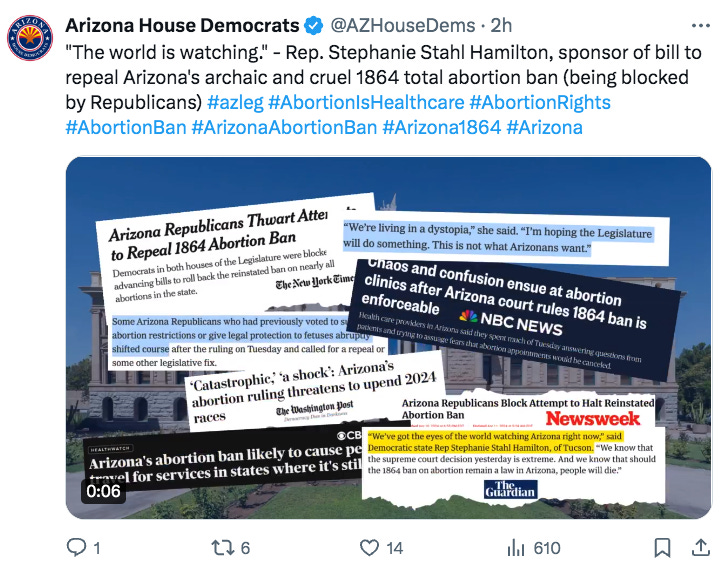The Climate Agenda: Students take charge of TUSD’s future
TUSD leaders are mulling a bold climate action plan with cost-saving benefits ... If approved, the youth-driven plan would be one of the nation's most comprehensive ... Uhlich eyes Ward 6 seat.
You might not have heard, but schools are one of the country’s largest emitters of greenhouse gasses every year, producing as much as 15 million cars, according to Harvard University. They’re also heavy hitters when it comes to energy costs, spending more than $10 billion a year on power.
That’s why Tucson’s largest school district is exploring an ambitious climate action plan that, if adopted, would be one of the most comprehensive in the nation.
The plan, which was spearheaded by a team of 30 local members of the Arizona Youth Climate Coalition, calls for sweeping changes across Tucson Unified School District over the next 20 years, including cutting emissions in half by 2030 and achieving net zero energy usage by 2045.
The plan was presented to governing board members Tuesday and is posted on the governing board policy website for public comments through May 10, after which it will return to members for amendments and further discussion. And while board members unanimously voted to move the item along in the process, they also expressed some concerns, mostly about the cost.
But as the youth presenters noted, regardless of the initial investment, implementing energy-saving strategies and cutting emissions will lead to cost savings down the road. They pointed to a school district in Kentucky that reported $11.5 million in savings just eight years after becoming net zero.
They also urged board members to consider the social cost of carbon, which represents the collective cost of the damage from carbon emissions, including the cost of climate-related deaths. The previous estimate under the Biden administration was $51 per ton, but in December, the EPA increased the estimated cost to $190 per ton.
If approved, TUSD’s new Climate Action and Sustainability plan would replace the district’s current Energy Conservation plan, which was written in 1991 and last updated in 2008.
AZYCC presenters made a compelling argument for its adoption, citing information from the Department of Education showing that districts that don’t pursue net zero energy usage will spend up to 25% more in energy costs over the next 30 years.
TUSD has been a cash-strapped district for decades, with tens of millions of dollars in funding stripped away over the years by the state Legislature. The district hit a turning point in November, when voters approved a $480 million bond package, a large portion of which will be spent on facility upgrades and modernizing the district’s fleet. That’s why now is the time to act, according to one board member.
“We’re going to be doing significant facility improvements and capital improvements and purchasing new school buses,” said board member Dr. Ravi Shah, who has been working with the coalition since last summer. “The time is now to make sure that as we do all these huge transformations of our district over the next three, five and 10 years, that we do so in a way that’s going to be sustainable, not just for us today, but for the future generation.”
TUSD Superintendent Gabriel Trujillo said during the meeting that district staff has already been working to figure out the overall budgetary impact of the plan, which will be presented to board members when it’s complete.
The plan is divided into three major areas, including climate mitigation, adaptation and education.
The mitigation portion includes creating a baseline report of all the district’s greenhouse gas emissions and a public dashboard to track its progress towards net zero. It also calls on the district to convert its bus fleet and all other district vehicles to electric by 2035 and to have all buildings certified by the Leadership in Energy and Environmental Design, which is reserved for healthy, highly efficient and cost-saving green buildings.
“Broadly, we’re trying to electrify every single thing (by 2035,)” AZYCC’s Tucson co-lead, Ojas Sanghi told the board. “Everything that burns gas, we want to stop that and make it run off electricity.”
It also includes measures to help the district reduce food waste, improve environmental sustainability, increase composting and recycling and more.
The adaptation section aims to help the district adapt to the worsening climate crisis, and includes developing plans to deal with extreme heat, adapting buildings to be heat resilient, creating a water use inventory and transitioning 100% of the district’s water use to water-efficient systems by 2035.
In terms of education, the plan requires the district to ensure age-appropriate, science-based and accurate curriculum from elementary school to high school and commit to community partnerships that support and enhance hands-on education about gardening, sustainability and food literacy. It also tasks the district with addressing climate anxiety, which affects more than two-thirds of Americans to some degree, according to Harvard Medical School.
It’s no wonder that climate anxiety is an issue for students, since they’re seeing and feeling the effects of climate change at a disproportionate level, Sanghi said during the presentation. Asthma caused by air pollution leads to 14 million missed school days each year, mostly for students of color, and extreme heat can cause widespread power outages.
But there’s evidence that reducing exposure to air pollution and improving environmental quality of buildings improves cognitive performance, so it’s a problem that can be fixed — If leaders take action.
“Climate change is a collective action problem, so all of us by contributing to this assist in helping,” AZYCC member and University of Arizona senior Samantha-Gonsalves Wetherell told board members. “The City of Tucson right now is implementing an incredibly comprehensive climate action plan. We as a district, by continuing to pollute, harm the implementation of that. We are adding to (the problem) when we should be working in tandem.”
Uhlich makes 10: Former Tucson City Councilwoman Karin Uhlich threw her hat in the ring to replace former Councilman Steve Kozachik, the Tucson Sentinel’s Jim Nintzel reports. She is now the 10th candidate in the bunch, which now also includes TUSD Governing Board member Ravi Shah and Pima Community College Governing Board member Theresa Riel. The council is accepting applications until April 15 and the term lasts until the end of next year. Uhlich said she wouldn’t run for the full term in 2025.
Uncertainty abounds: In the hours after the state Supreme Court’s ruling on abortion, workers at one abortion clinic were struggling with what to tell patients, their own emotions, and how to interpret the law, Arizona Public Media’s Paola Rodriguez reports. They’re worried how patients will get treated at overloaded emergency rooms, as well as where to draw the line on what is considered life-threatening, and thereby allowed under the 1864 ban.
“That's not a real medical thing,” Dr. Atsuko Koyama said. ”There's no definition of what close enough to death means to a legislator…Right? These are medical decisions that should be between a physician and the patient.”
Chaotic politics: Over at our sister newsletter, the Arizona Agenda, they break down the political theater on the state House floor as Democrats tried to repeal the 1864 ban on Wednesday, along with the awkward politics for both parties as they try to figure out what to do next.
A different kind of shot: A health center in Cochise County saw some success as they took a novel approach to immunizing local residents: they offered them at dental visits, the Arizona Republic’s Sarah Lapidus reports. The area served by the Chiricahua Community Health Center had historically low immunization rates after the COVID-19 pandemic, but since late 2022 they’ve immunized more than 1,800 children and adults.
Uncounted ballots: Cochise County election workers found two sealed mail-in ballots in a ballot drop bag that weren’t tabulated for the 2022 General Election, AZPM’s Summer Hom reports. They discovered the two ballots when they grabbed the drop bags from secure storage for the Presidential Preference Election in March. County officials made the announcement after an internal investigation. Going forward, they will return drop bags to the elections department on election night, rather than in the following days. The two voters were notified.
We think it’s great that TUSD is taking action towards sustainability. We’re working towards a different type of sustainability and we need your support to help grow our operation. Please consider donating to our efforts.
Pollinator tips from the pros
Join the Pima County Master Gardeners this month for a series of free, in-person library talks about pollinators and the plants that bring them to our gardens. There’s no need to sign up in advance. Dates, times, topics and locations include:
Today at 2 p.m., Bear Canyon Library
Warm Season WildflowersSaturday April 13 at 12 p.m., Murphy-Wilmot Library
Pollinators and Plants They LoveMonday April 15 at 3 p.m., Woods Memorial Library
Warm Season WildflowersTuesday April, 16 at 2 p.m., Dusenberry-River Library
Monarch FlywayFriday April 19 at 11 a.m., Esmond Station Library
Pollinators and Plants They Love
Earth Day clean-up with the mayor
Join Tucson Mayor Regina Romero, the City of Tucson and Tucson Clean and Beautiful next Friday from 8:30 to 10:30 a.m. for an Earth Day clean-up event in the 29th Street Thrive Zone. Activities will include picking up litter and beautifying the area. Volunteers will meet at the Pima Community College Coalition (4355 E. Calle Aurora) and city staff will be posted up with supplies at a check-in table. Parking is available in the northwest lot. Volunteers should bring a refillable water bottle and extra water, a hat and sunglasses and wear long pants, long sleeves and close-toed shoes. Sunscreen, gloves, safety vests and litter grabbers will be provided. Click here to register or for more information.
Santa Cruz River cleanup
Tucson Clean and Beautiful and community partners are teaming up for a Santa Cruz River Day of Connection next Saturday from 9 a.m. to noon to clean up litter and learn about local birds Come early and join the Tucson Audubon Society for an optional birdwalk from 7:30 to 8:30 a.m. The main event will feature community, music, food trucks and more. Experts will talk about invasive species and why removing them helps protect Saguaros and native wildlife. The team will be meeting at the Santa Cruz River Park in Barrio Hollywood (802 N. Riverside Dr.) Volunteers are asked to bring a water bottle with extra water and wear a hat, sunglasses and sunscreen, close-toed shoes, long pants and a shirt with long sleeves. Trash grabbers and bags, gloves, shovels and other tools will be provided. Learn more and register here
Weedwackers take on Tucson Mountain Park
Join the Sonoran Desert Weedwackers and Pima County Natural Resources, Parks and Recreation for two weed removal opportunities in Tucson Mountain Park on Saturday, April 20 and Wednesday, April 24 from 7 to 11 a.m. Details on the specific meeting location within the park will be sent out a few days before. Volunteers should come prepared to hike off trail to reach the work area. Hosts will provide snacks and drinks. Volunteers should bring water (two liters,) snacks, a backpack and sunscreen and wear sturdy shoes, long pants, a hat and long sleeves. Attendees will be provided with tools and work gloves. Learn more and register here.
Sustainable mobility bike repair workshop
Join the Watershed Management Group and BICAS on Wednesday, April 24 from 5:30 to 7:30 p.m. and for a free sustainable mobility workshop that will teach attendees how to make simple bike repairs. Participants will be guided in hands-on bike repairs and will be provided with the tools and materials needed to fix their own bikes. The workshop is part of WMG’s sustainable mobility series and will include information about ways to plan and choose bike, bus and walkways as a way to reduce carbon emissions and help heal the watershed. The workshop is free and BICAS’ time and materials are covered through Pima County’s Clean Air Program. Learn more and register here.
Revitalize South Tucson’s Greenway
Join Midvale Neighborhood residents, the City of Tucson, Tucson Clean and Beautiful and Ward 1 staff on Friday, April 26 from 8 to 10 a.m. for a neighborhood cleanup at the Santa Cruz River Bikeway. The group will meet at 4870 South Calle Santa Cruz in the Sherwin Williams Paint parking lot. Staff will be posted up with supplies at the check-in table. Volunteers will pick up litter and beautify the area and should bring a water bottle with extra water and wear a hat, sunglasses, closed-toed shoes, long pants and long sleeves. Sunscreen, gloves, safety vests and park patrols will be provided. Learn more and sign up here.
Upcoming meetings
Oro Valley Water Utility Commission - Today at 12:45 p.m.
Tucson-Pima County Bicycle Advisory Committee - Wednesday, April 17 at 6 p.m.
City of Tucson Citizen’s Water Advisory Committee - Thursday, April 18, at noon
Complete Streets Coordinating Council - Wednesday, April 24 at 5:30 p.m.
Commission on Climate, Energy and Sustainability - Thursday, April 25 at 5 p.m.
We’d love to hear your ideas for future editions of The Climate Agenda. Send those to caitlin@tucsonagenda.com.









